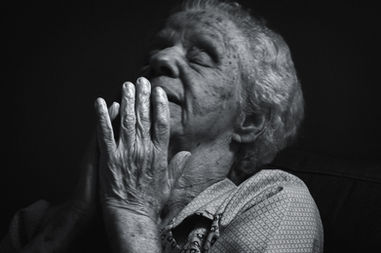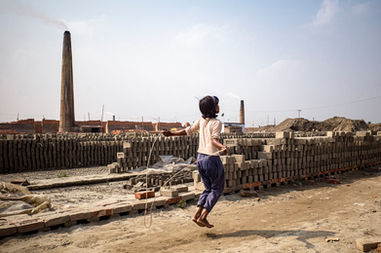
THE GHOST SELF
Buku Sarkar stages her refusal to vanish. Her photographs are unflinching, lyrical acts of documentation, mapping a body in flux and a mind grappling with the epistemic dissonance of chronic illness.
May 18, 2025
PICTORIAL STORY
photography BUKU SARKAR
story BUKU SARKAR
introduction MELANIE MEGGS
There are moments in life when the known world slips quietly out from under us. When the body falters, language retreats, and the steady logic of time unravels. Buku Sarkar’s story is not a straightforward narrative but a trembling aperture. It was illness that unstitched the fabric of her former life — a writer’s life — and cast her, unexpectedly, into the wordless intensity of images. “I was a fiction writer,” she says, “but when I fell ill, I lost the ability to write. Photography found me in that silence.”
Having grown up in Calcutta and having spent nearly half her life between Calcutta and New York, Buku now finds herself living in Paris, where the question inevitably arises: what is home? “It changes from time to time. Sometimes it’s where my dog is. Right now, it’s where my partner is. But that’s new,” she reflects. “I think I’ve been chasing the idea of home for a long time. But I’m not the only one. Almost every writer I know feels a sense of displacement from the world around them, no matter where they live.” The emotional tone of her work shifts with geography — “You can feel something very different in my New York pictures compared to my Calcutta ones,” she says. “There’s definitely more of me in those than in my Delhi or Paris images. In Paris, I’m still hovering.”
Navigating cultures, continents, and ways of seeing, Buku’s life has always been shaped by a kind of duality. But it is only after her move to New Delhi in 2013 that this duality turns corporeal, as her body begins to splinter from her sense of self. Unnamed tremors, blackouts, and collapses take root in her flesh, resisting medical diagnosis and cultural comprehension alike. The language of Western medicine fails her; the language of people around her — often cloaked in euphemism or reduction — fails her more. Buku, acutely aware of the harshness of such terms, folds them into her story not as definitions but as distortions she must continually resist.
For Buku, photography was born not from a planned project or artistic ambition, but from a quiet necessity. It began, quite simply, with a friend. “A dear friend of mine, Aveek Sen, would come over and read to me. When I felt better, he asked me one day if I’d like to go on a photo walk,” she recalls. “So off we went one day, and I was hooked from the first minute.” From that one wandering, a new language began to form. “I came home, opened an Instagram account and Aveek from his house, and I from mine, posted everything we took on our walk. And how different our images were, even though the walk was the same. He had told me then — that I have something. I laughed it off. Sadly, he passed away three years ago with Covid.”
“I didn’t know what I was doing at first,” Buku says, “but I could feel it in my body — something was being released. There was rage in me, and tenderness too. All of it had to come out.” This resistance is not loud. It is not triumphant. It is, instead, exacting and ongoing, conducted through quiet, aesthetic gestures and vulnerable admissions. Her background as a fiction writer and screenwriter haunts the visual grammar of the series. “I see before I write,” she says. “That’s always been true. Scenes come to me whole — not as sentences, but as atmospheres.” The transition from page to photograph was not a rupture, but a metamorphosis. “Even in writing, I was chasing an image. Now, I let the image speak without needing to explain.”
In her project Containment Diaries, Buku stages her refusal to vanish. Her images are not decorative — they do not pander to comfort or beauty. They are unflinching, lyrical acts of documentation, mapping a body in flux and a mind grappling with the epistemic dissonance of chronic illness. Her prose, rich in interiority and philosophical candor, refuses to moralize the sick body or extract inspiration from suffering. Instead, she asks a harder question: “What becomes of the self when the body forgets how to be itself?”
Though Containment Diaries emerged in a time of physical and social restriction, the work is anything but confined. If anything, it expands. It moves through the porous borders of self and setting, memory and invention, the seen and the felt. The images are constructed, but never rigid; staged, but never static. “I don’t take pictures to show what’s there,” Buku says. “I take pictures to make what isn’t.”
This refusal to merely observe — this hunger to create, to transmute, to feel through the act of looking — defines not just this series but her entire practice. She is not a documentarian of her life, but a dreamer of its possibilities. “Sometimes,” she says, “photography is the only thing that helps me survive. It gives me a rectangle I can breathe inside.”
Her work is also a profound meditation on temporal dislocation. Illness, she shows us, distorts time. Days dissolve into one another in the stillness of fatigue. Recovery, if it exists, does not follow the linear arc of cure but circles back into relapse and uncertainty. Yet, through this altered temporality, Buku cultivates a radical intimacy with herself. One shaped not by what she accomplishes, but by what she endures. In the garden she cannot walk through, in the shoes she cannot wear, in the mirror she avoids — there is a symphony of deferred desire and dignified grief.
With ‘the ghost self’ as her central metaphor, Buku’s story becomes not only a portrait of illness, but an act of artistic reclamation. To live with a chronic condition is to be in constant negotiation with absence. But to write it — to photograph it — is to insist on presence, even within that erasure.
-min.jpg)
CONTAINMENT DIARIES:
I couldn’t get out of bed today, which is nothing new. I just couldn’t lift my neck from the pillow. I felt like I’d had a concussion. Electric sparks run up my spine. I can’t feel the tremors today. But when you are in the presence of others, you feel you must perform. So, I do it, for the sake of my parents. Then perhaps every day has been a performance. For my sister who comes to visit with her two boys; for a phone call with my photo book editor in Georgia; For the dogwalker…I have become so reliant on these little happenings to pretend I feel okay that I have begun to dread the quiet days when I can no longer hide in lies and when it is perfectly alright for me to sleep in. I cannot stand those days. Soon, when all the world becomes a safer place, I will move to New York where there is no family and no help and then I will have to make up new lies every day as I go about chores.
I have, over the years, learnt to live off the championing positivism that comes out of my mother’s mouth. Not only because she nursed me back to health, but also because she has a way of living in a plain world where everything has answers and solutions and everything makes sense. Because somewhere out there, is the next morning, when I will once again wake up and realize I am not myself yet and may never be. Till then, I keep pretending in my mother’s world.
Of late, I have to keep repeating to myself: you are not in New York, you are not playing tennis. You are here. My mother has used the word ‘othorbo’ which, in English means ‘cripple’. She calls the choppy way I walk the ‘Geisha walk’. All this would’ve been amusing had it not really been happening in slow motion over the years, this turning into a vegetable in front of your own eyes.
I look at the dark, polish of the antique headstand of the bed I am lying on as I think this. The carved wreath is like Caesar's crown in its center. This was my sister’s bed when we were growing up. My vision is shaky. I’m not fully sure where I am. When you are in mourning, these little details fill the various compartments of time.
The images are uncomfortable, yes, but they are meant to be. There are no flowers here. This has been a journey of nightmares and fear, of panic and tremors but also dreams — that one day I will walk normally again. I will wear my nice shoes again. I will go out without worrying about blacking out.
I wanted to show all of that. I wanted to show how important the body is to the self. If you lose a sense of your body, you don't know who you are anymore. If you can't walk straight, you lose your confidence. You don't care to look in the mirror. You don’t care to change clothes or brush your hair. The body is a very important part of this project — the flesh, the bones, the breaking down of the body, the spirit.
I’ve left most of the images in a chronological order so that you can see the ups and downs: the fear and the hope that cycle through my days, nights.
When you have suffered so acutely from chronic illness, you become absent from your own life, a ghost to yourself.

Through these images and fragments, Buku Sarkar does not ask for our sympathy, nor does she offer closure. Instead, she gives us something far more urgent: an invitation to witness the unspoken, to sit inside the long silences of illness, to feel what cannot be fixed. And yet, even in the ache of that visibility, something else stirs — something tender, reaching. “I call the second edition of Containment Diaries - The Wonder Years,” Buku says. There’s a shift in her tone: not toward recovery in the traditional sense, but toward curiosity, possibility.
Her relationship with photography continues to evolve, moving toward conceptual imagery and new, emotionally charged terrain — including explorations of the body, both female and male, in all its complexity. “I know it will go somewhere different again, I can feel it coming,” she says. “I love that. It’s best to let it take you.”
In the end, Containment Diaries is less about documenting a life interrupted than it is about reclaiming a self in fragments. In the stillness of pain and the blur of time, Buku Sarkar builds a space where the ghost self can breathe, tremble, and eventually, wander again.

The views, thoughts, and opinions expressed in the text belong solely to the author/s, and are not necessarily shared by The Pictorial List and the team.












































